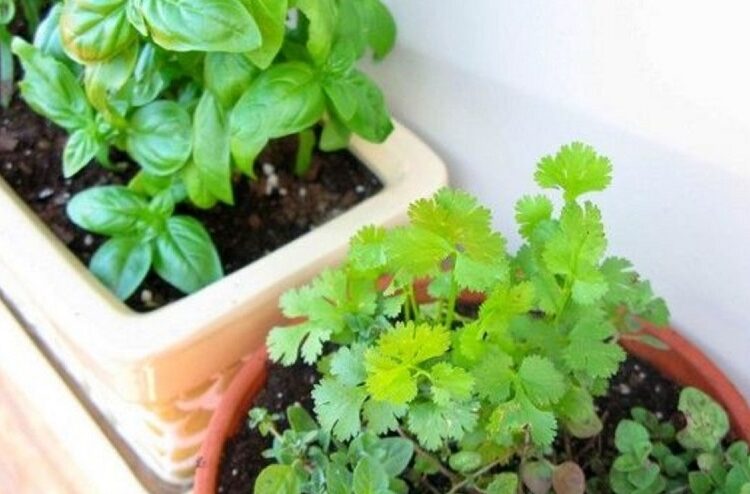Beautiful organic herbs can grow well both in your office and in your home. They don’t need a log of space, while they are beneficial for you in certain things. If you add them to food, your food will be more delicious and flavored. If you add them to your soap, it will be well scented. Most organic herbs are great for your health as well as your skin.
But it is necessary for you to learn about where herbs grow well and how to care for them before planting herbs in your house.
1) Considering humidity
Relative humidity refers to the amount of moisture in the air. The average level of relative humidity is 20%, but it is too low to keep a plant alive. To protect your herbs from losing moisture too fast and wrinkling their leaves, you should find ways to increase the humidity in your home. For example, build an indoor fountain. It not only makes your home appealing but also adds humidity to your plants.
2) Considering light
Most herbs, including dill, basil, thyme, tarragon and chives, require direct sun light to thrive better. So you can put these plants on a windowsill to get more sunlight. But ensure to water the soil directly instead of the leaves if you place them there, as the window pane can magnify the water on the leaves under the sun, which may hurt your plants.
3) Considering temperature
Most herbs grow fast and well between 58F and 86F. To ensure the growth of your herbs indoors, it is best to keep the temperature above 50F in all seasons. In summer, if you use your air conditioning, you should turn up the temperature to protect your herbs. If the temperature is too low, the lower leaves may turn yellow and some of them may fall off. But if the temperature is too high, the air will be dry and the moisture will be too low for your herbs to grow properly. The leaves will turn yellow and bend toward the ground, even if you water them regularly. So it is crucial to keep the temperature at a moderate level.
Here are some other tips for growing herbs:
1) Selecting herbs: Choose plants that will grow fast indoors and that are attractive to you.
2) Planting: Don’t use medium soil in the garden as it will bring disease or pests. You need organically rated potting mix to ensure the health of herbs.
3) Water: Water your herbs regularly, but don’t water too much, which will lead your herbs to death. You should choose containers which drain well.
4) Picking: It is good for your plants to grow faster and better if you pick herb leaves regularly.
